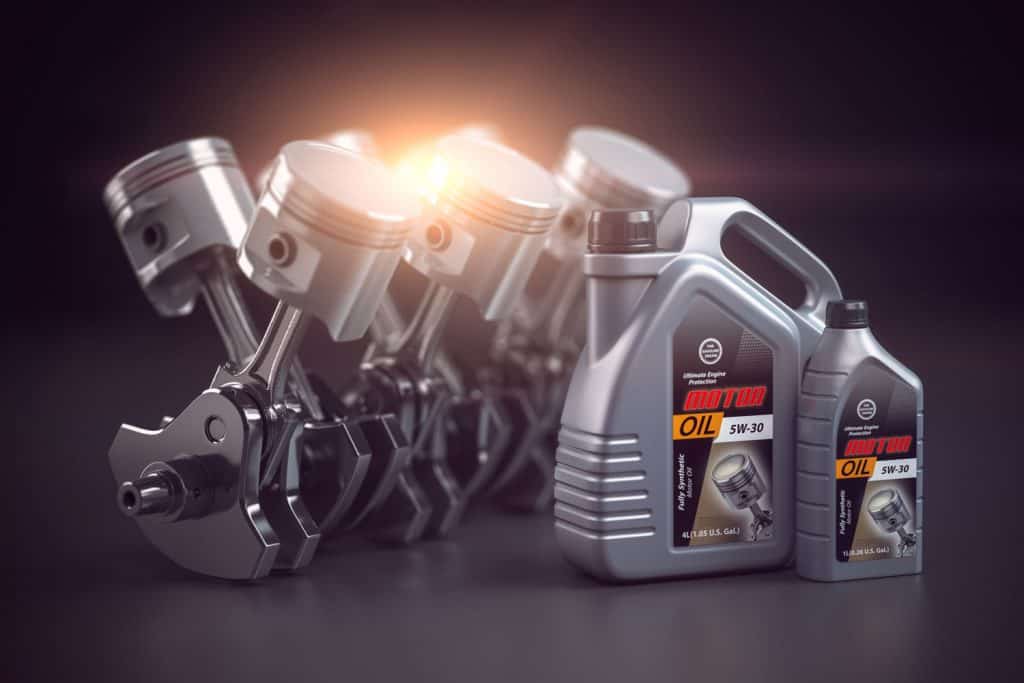Oil is an essential lubricant of your engine. Oil helps the mechanical moving parts to move smoothly, filters foreign contaminants, and lessens the engine's heat. There are many different kinds of oils available for your pickup truck. We have consulted experts on what is the best oil for your pickup truck. Here is what we got from them.
For the best oil viscosity for your pickup truck, you'll have to check your vehicle's owner's manual or check the oil cap in your engine bay. Each manufacturer's vehicles' models and engines will have different viscosity ratings.
As for the type of oil, it is best to put synthetic oil in your pickup truck. Your pickup truck will benefit from synthetic oil because it has the protection that your engine needs, especially if you're going to use it for towing. The one downside to synthetic oil is that it's more expensive compared to conventional oil.
Also, synthetic oil lasts longer than conventional oil. Synthetic oil will last between 6,000 to 16,000 miles before you need to change it, while conventional oil is around 5,000 to 10,000 miles. The frequency you need to change your oil will differ depending on how often you use your vehicle. For more information about motor oil, keep reading below.

What Is More Important For Oil Changes: Time Or Mileage
A time-based oil change is more important because even if you don't use your vehicle regularly or you don't hit the 5,000-mile mark, the oil in your vehicle will degrade over time. Even if you don't use your vehicle, it is still recommended that you change your engine oil twice a year.
Driving on old engine oil will not instantly ruin your engine, but running old oil for a long time can permanently damage your engine's mechanical parts. If you don't know how to change your oil, you can hire a mechanic or bring your vehicle to a mechanic shop.
What Happens When I Put The Wrong Oil In My Car

There are multiple things that can happen when you use the wrong engine oil. When changing your oil, it is best that you use the same oil viscosity and type of oil to ensure that there won't be any problems. Here are some of the problems you may encounter when you put the wrong oil in your engine.
Burning Smell
If you use an oil that is too thin for your engine, you can easily break down the oil, making it thin out, and this will cause more friction. Oil thinning out and friction can cause a burning smell. Friction can also cause permanent damage to your engine, which will be very costly to repair.
Oil Leaks
When you put synthetic oil on an older car model, you might notice that your engine starts to leak. This is because synthetic oil is much thinner than conventional oil they can pass through gaps that conventional oils cant pass through. Though synthetic oil leaks won't directly ruin your engine, they will just increase the need to replace your oil.
Engine Noises
Engine noises might also come from your engine, especially when you put synthetic oil in an older car model. You get engine noise because the synthetic oil is thinner, making it slip quicker into the engine compared to conventional oil.
Hard Time Starting In The Cold
When looking at different kinds of engine oil, you will notice that there are oil grades (ex. 5W-30), the number before the "W" indicates how thick or thin the oil is when cold, while the number after the "W" indicates how thick or thin the oil is when in optimal temperatures. The lower the number, the thinner the oil viscosity will be.
If you have a thick engine oil viscosity while your car is cold, you'll have a hard time starting it up since the oil is thicker the engine will have more resistance when your try to start your vehicle. Having thicker oil when cold will affect your car's start-up more, it will take longer to start, or your vehicle won't start at all till it gets warmer.
What Are The Engine Oil Types

There are multiple kinds of engine oil available right now, and choosing the right one for your vehicle's engine is essential. Engine oil will help lubricate your engine's metal moving parts to avoid friction and lessen heat. Engine oils can differ from the way its made, the oils lifespan, and price.
Conventional Oil
When talking about conventional oil, this refers to traditional oil. Conventional or traditional oil is the type of oil that has been used for a very long time in automobiles and other types of machinery.
It's named conventional oil because the process of making this oil is done the traditional way, in comparison to fully synthetic or semi-synthetic oils that have more additives and are refined differently.
Conventional oils are best used by older vehicles, since most of them do not require you to use synthetic oils. Also, Conventional oil is much cheaper compared to the price of fully synthetic and semi-synthetic oil, but you will have to change your oil twice as often.
Full Synthetic Oil
Full synthetic oil is different from conventional oil because to produce full synthetic oil, the oil has to be chemically and physically modified. Because of this modification process, fully synthetic oil tends to be purer and cleaner.
With fully synthetic oil, you will be able to use it for a longer period of time before needing to replace it. Since the fully synthetic oil needs to go through extra processes, it will cost more to use full synthetic oil compared to the price of conventional oil.
Semi-synthetic Oil
Semi-synthetic oil is considered to be the middle ground of conventional oil and fully synthetic oil. Semi-synthetic oil is a mixture between fully synthetic oil and conventional oil, it may not be a 50/50 mix, but it does give you the best of both types of oils.
Some newer vehicles will require you to use semi-synthetic oils, but most cars coming out now or are about to be released typically require fully synthetic oils.
If you don't know what oil to put in your vehicle, it's best to consult a mechanic or bring your vehicle to a service shop; from there, they can replace your car oil for you. They can also keep a record of when you last got your oil change so that your oil change will always be on time.
Can You Switch Oil Types

Yes, you can switch oil types. The best time to do this is when your old oil is due for an oil change. You may have heard that you can't switch from synthetic oil to conventional oil; this statement is simply not true.
You can switch to conventional, semi-synthetic, or fully synthetic oil. You can also switch oil brands if you choose so.
The most important thing to look out for when planning to switch oil types or you just need to change your old oil is the oil's viscosity. The new oil you will use must have the same oil viscosity as the old one to ensure that your engine will still be running in its optimal condition.
You also need to keep in mind that if you plan to switch from synthetic oil to conventional, you will have to change your oil twice as often. While switching to semi-synthetic or fully synthetic oils will be more expensive than conventional or traditional oil.
Closing

When choosing the right oil for your pickup truck, it's best to check your car's user manual or check the oil cap located in your engine bay. But for the type of engine oil, fully synthetic will be best because it can withstand more heat, lasts longer, and is great if you use your vehicle to tow stuff around.
When changing oil, you must always keep in mind what type and viscosity you are replacing your old oil with. Multiple problems can occur when you put the wrong kind of oil, such as heating issues, burning smells, and oil leaks. If you are unsure of what oil to use, you can bring your car to a mechanic; they can change your oil and keep a record of when your oil was last changed.
For more automotive topics and tips, check out the following posts.
What Is Brake Assist In Cars? [What Every Driver NEEDS To Know]
Can You Have A Passenger While Driving For Uber, Lyft, Uber Eats, Or Doordash?
